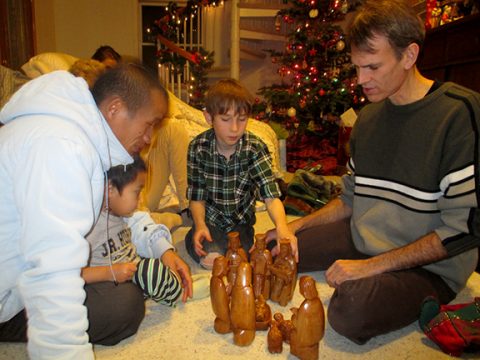

Each person who moves into a new country will experience some sort of culture shock or adjustment. A “thumbs-up” gesture may be obscene to them. Looking directly in the eye while talking may feel rude. Eating lunch without any rice may leave them feeling hungry. Everything can seem new, different, and just plain strange.
You can be the one to help them deal with the huge changes and begin to understand your culture. You can explain help them adapt to new ways. It’s as easy as being available for them to ask questions. You can ask them too, like, “What have you found that seems strange in this new country?” ”What’s different here from where you came from?” ”Is there anything that you see or experience that you’d like to understand better?”
As a committed Christian, who compares her life to the Bible, you are best suited to help internationals enjoy what is good and reject what is bad in the local culture.
One of the ways you can do this is by asking them about the family and ethical values of their home culture. Ask them what they see in the new culture that is different from what is important to them. Discuss television, movies, music, and other entertainment. Encourage them to avoid watching and doing those things which will lead them and their children away from their good values.
Read together a book about the local culture and discuss it. You might try Culture Shock, USA: A Guide to Customs and Etiquette by Esther Wanning.
Click here for Bible Guides that will help them address the good and bad in any culture. (Add when created)
With such huge differences in culture, does it make you hesitant to get close to new people? Are you afraid you might make a mistake and offend them? You don’t need to worry. They are much more likely to really appreciate your friendship as you learn their culture and become their friend. Sincere, genuine interest is way better than indifference or being too shy!